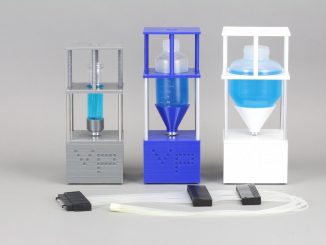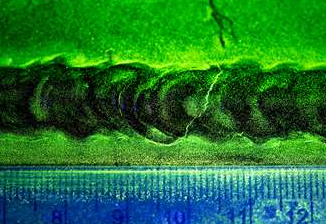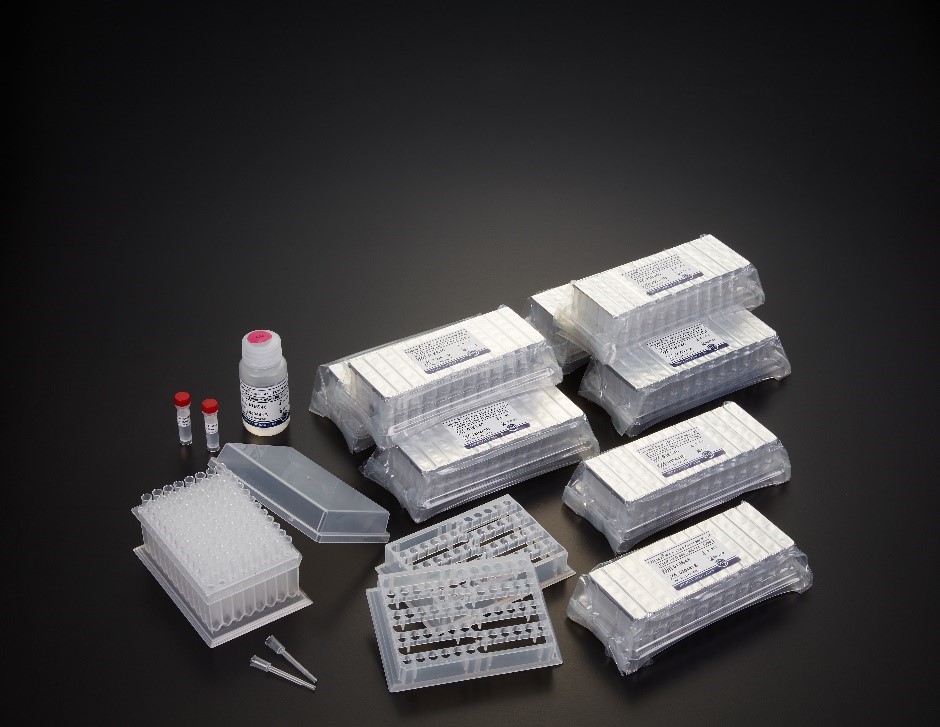
As the demand for nucleic acid extraction grows around the world, Taiwan Advanced Nanotech Inc. continues to develop its portfolio of microscopic-sized magnet beads and automated devices for handling them for genetic research and molecular diagnostic markets in healthcare.
Building steadily from its beginnings 15 years ago with the chemical synthesis and manufacture of magnetic nanoparticles, TANBead, as the company is known, has evolved to become a total solution provider for nucleic acid extraction. The company recently introduced several new models of automated systems for extraction and handling that add to its specialized line of reagent kits (pictured above), magnetic nanoparticles and automated extraction instruments for nucleic acid purification.
“Nano-particle creates the invincible power. We develop the new technology to make the world healthier,” says Raman Chien, general manager of the company which he founded in 2004 and is based in Taoyuan City. “In order to satisfy the current boom demand from the molecular testing market, the benefits of using magnetic-bead based reagents with automated magnetic bead processing system are improved detection throughput and reduced labor costs while also reducing human error and avoiding operator infection,” he notes.
Magnetic media have evolved as a useful media for automatic extraction because they can be separated quickly and efficiently circumventing the need for filtration, centrifugation and separation techniques. The company’s expertise in producing uniform-size super-paramagnetic iron oxide (SPIO) particles, or beads, is a key factor. Now TANbead offers a fully automated platform of products based upon its beads and magnetic bead stirring technology.
Its instrument series of nucleic acid extractors, named Maelstrom for their patented whirl stirring technology and patented spin tips for efficient sample mixing, includes a range of models for different throughputs. Three new models were introduced in 2018 and 2019-The Malestrom 4800, 9600, and 2400.
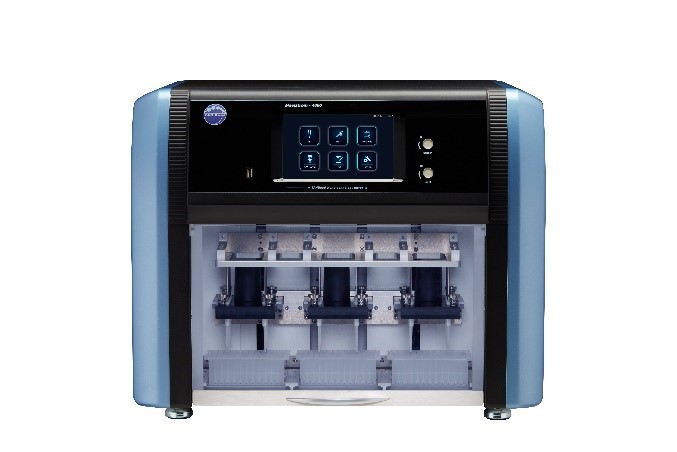
Maelstrom 4800
Maelstrom 4800 is a standalone and compact automated nucleic acid extractor. It can process up to 48 samples on three 96-well deep well plates which can handle 16 samples at each plate at the same time.
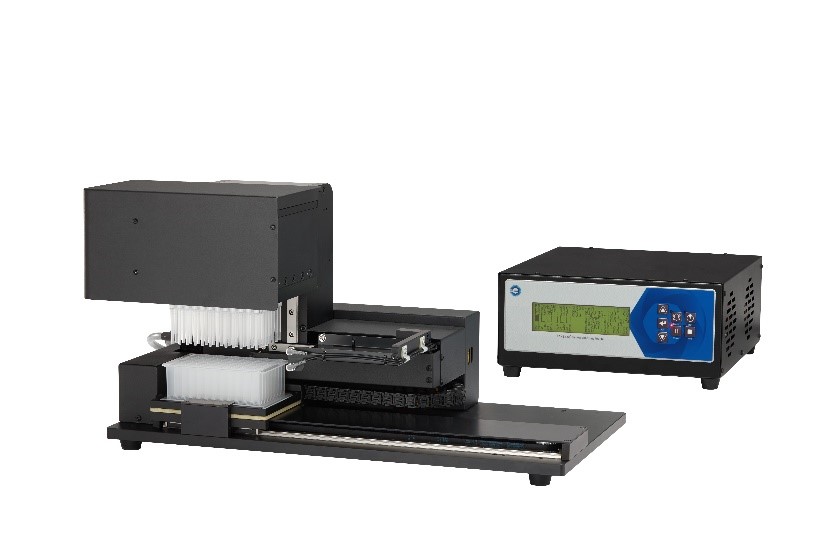
Maelstrom 9600LH
Maelstrom 9600LH is designed to work with a liquid handling workstation. It can process 96 samples per run, and the extracted nucleic acid can be directly analyzed by qPCR assay on the liquid handling workstation.
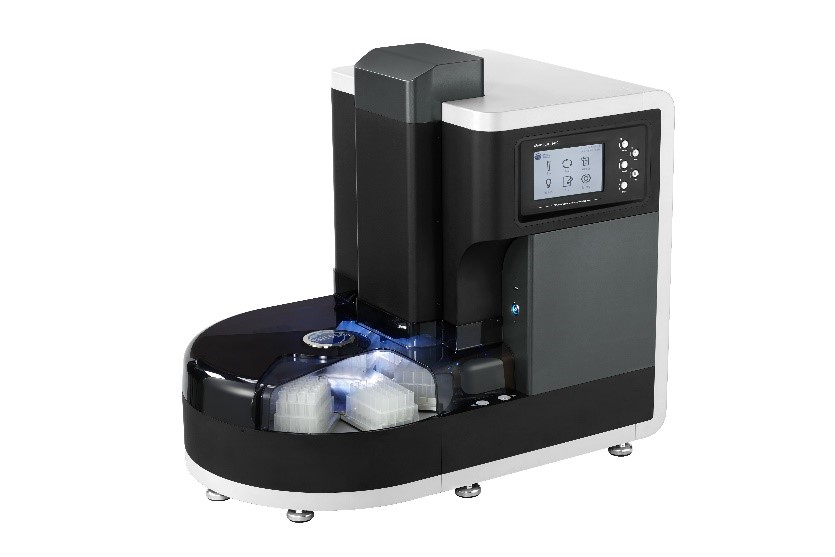
Maelstrom 2400 with plate spinning
Maelstrom 2400 is also a standalone automated nucleic acid extractor. The major advantage is the large processing volume it can handle. With 24-well deep well plate, it can process solution with volume up to 10 ml.
In the procedure of nucleic acid extraction, the sample must be heated at some steps. The Maelstrom series contain a heating system so users do not have to put their samples into another incubator or other devices to process the heating steps. The instruments are open systems with customizable programming which can be applied to a broad range of magnetic bead-based reagents including protein, DNA and RNA samples. The Maelstrom models 4800LH and Maelstrom 9600LH have integration platforms which can be accommodated with liquid handling workstations. These two instruments provide an alternative for combining nucleic acid extraction and genetic analysis in one workflow. They can be integrated into an existing liquid handling system to enable sampling from blood collection tube directly.
The company’s magnetic-bead reagent kits come in several variations to suit divergent sample types and incorporate numerous features for avoiding contamination in handling and for efficient workflow to provide consistent results in processing.
The TANBeads are prepared at ambient pressure in a non-organic system by liter production output without any deoxidation treatment. They are produced in sub-micrometer to micrometer size and coated with silica in order to efficiently absorb the nucleic acid. The company modifies the beads into functional groups for different applications.
There are four types each suited to specific functions. Protein A beads are coupled with protein A to purify high quality IgG from serum and cell culture supernatants. Streptavidin beads are modified with streptavidin to isolate the biotin labeled molecules. His-Capture beads coupled with chelator are applied in waste water heavy metal treatment to remove the divalent metal ions. The beads can be further chelated with Ni2+ to purify recombinant His-tagged fusion proteins from bacteria or organisms by using magnetic assay on an automatic process. Silica mag beads with hydroxyl groups can control the pH of buffer for non-specific adsorption by surface charge. At high pH value, the beads can absorb metal ion in blood by native charge of silica surface. At low pH value, they can absorb cell in blood by positive charge of silica surface.
The formation core of iron oxide (Fe304) with high induced magnetization (35emu/g) is designed to quickly respond to an applied magnetic field, making the beads easily handled in a robotic system and reducing the total working time. The beads are designed so they can be mixed well in reaction buffer easily in order to maximize the quality of extracted target. The magnetic material used is compatible with biomolecular processes and can be metabolized naturally.
Applications for the beads and equipment include blood screening, genetic testing to assess disease risk, cancer treatment, prenatal testing and testing for antibiotic-resistant bacteria. For more info, see www.tanbead.com.

